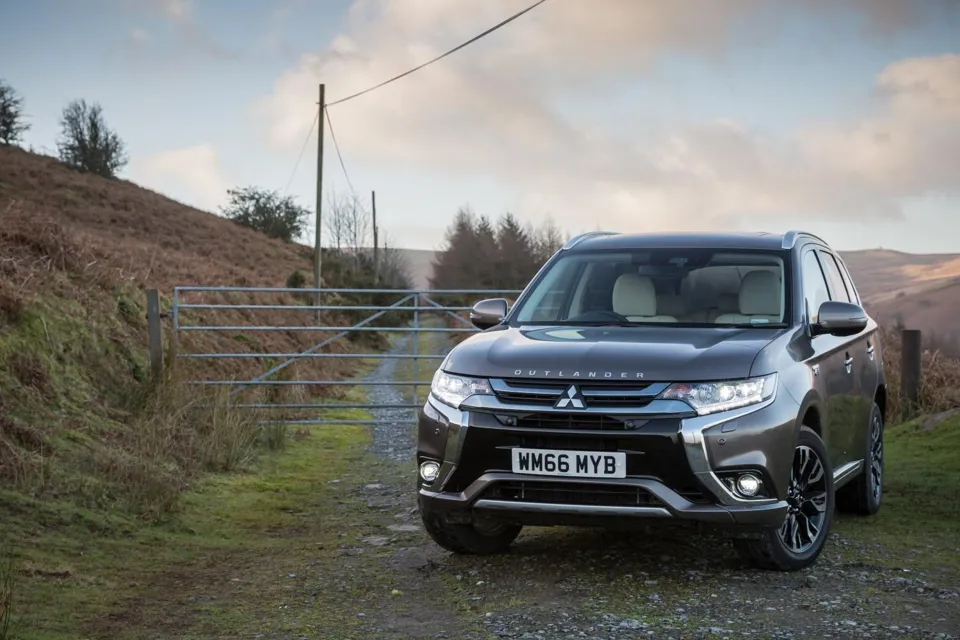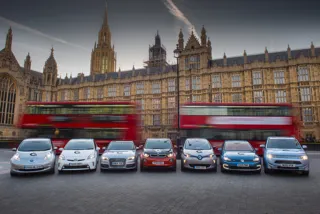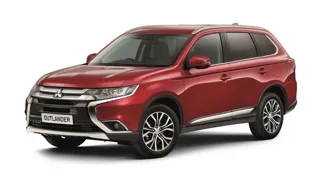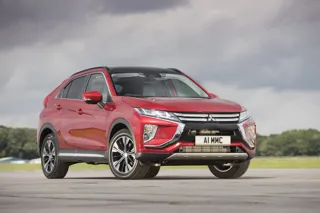The Mitsubishi Outlander plug-in hybrid has extended its lead over the pure battery-electric Nissan Leaf to remain the most common ultra-low carbon car on the UK's roads.
Analysis by the RAC Foundation of the latest DVLA data shows there were 29,408 Outlanders on the road at the end of June 2017, up 1,731 on the previous quarter.
This compares with the 17,352 Leafs, up 851 on the previous quarter.
Third came the Mercedes-Benz C350 e (7,629), followed by the BMW i3 (7,597) and the BMW 330e (6,039).
Overall, at the end of June 2017, there were 105,745 licensed vehicles on the roads that are or have been eligible for the government’s plug-in car and van grant schemes.
This total is 59% higher than the 66,375 vehicles on the roads at the end of June 2016.
Under the government’s plug-in grant schemes, car buyers can get a grant of up to £4,500, depending on the model, and van buyers a grant of up to £8,000.
Steve Gooding, director of the RAC Foundation, said: “The figures reveal a steady take up of ultra-green cars, but they also underline the fragility of the market. Of some 31 million cars on the UK’s roads, just 0.3% are ultra-low carbon.
“Encouragingly, the range of vehicles available for the public to buy continues to expand which demonstrates the automotive industry’s collective determination to offer people an alternative to petrol and diesel vehicles.”
Top 10 vehicles that are, or have been, eligible for the government’s plug-in car and van grant schemes and which were on the road in the UK at the end of Q2 2017 (the most recent date for which figures are available):
|
Rank |
Vehicle |
|
1 |
Mitsubishi Outlander PHEV (all variants) |
|
2 |
Nissan Leaf |
|
3 |
Mercedes-Benz C350 e |
|
4 |
BMW i3 (of which are Range Extenders) |
|
5 |
BMW 330e |
|
6 |
Tesla Model S |
|
7 |
Renault Zoe |
|
8 |
Volkswagen Golf GTE |
|
9 |
Hyundai IONIQ PHEV |
|
10 |
Volvo Xc90 T8 Twin Engine |






















Gordy - 22/09/2017 13:04
This is amazing! What are the REAL WORLD emissions and fuel economy figures for the Mitsubishi Outlander PHEV? How far will it travel by battery alone if you charge the battery from flat to full (1 hour on a rapid charger for 20 miles electric range - is this true?). What have we done by allowing this and other hybrids through the net? Surely pure EV should be the only tax free and subsidised vehicle type. It's not perfect but at least the emissions are at the power station and not in the cities (lungs).